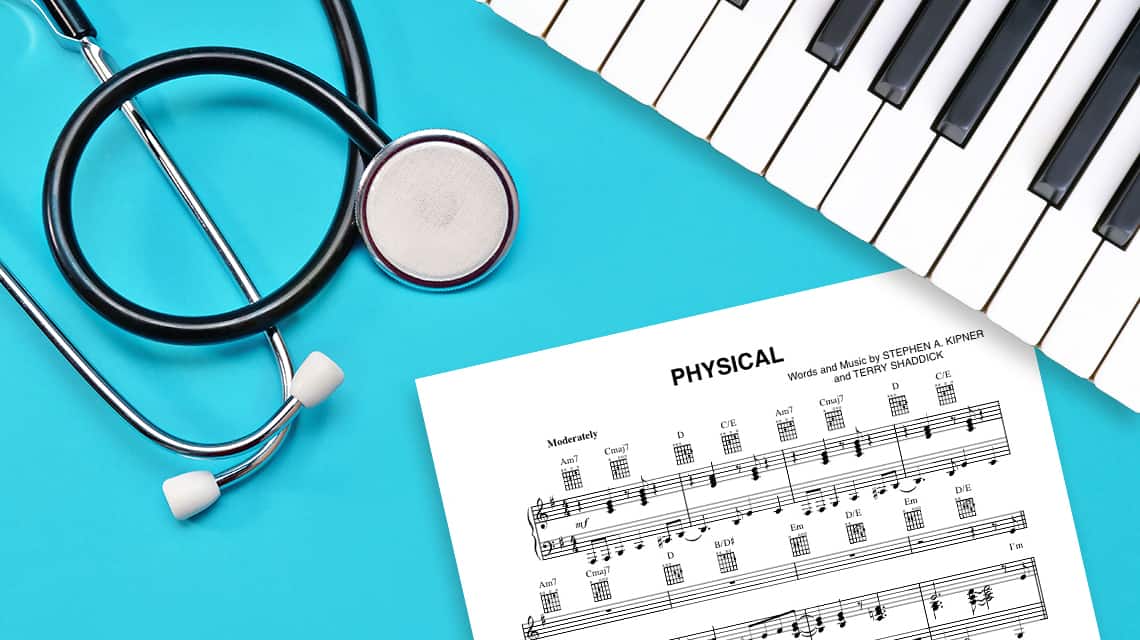Benefits of Music for Health
Music has plenty of benefits on the body, mind, and general health. It exerts a powerful influence on human beings in all capacities. For many years music has been used to create a feeling of cohesion and togetherness among people.
Music therapy is used by hospice and palliative care therapists to enhance conventional treatment for a variety of diseases such as stress, depression, anxiety, management of pain, and neurological disorders. Here are the benefits of music for health:
Improves Mood
 According to studies, it has been found that music can improve someone’s mood. It helps regulate emotions and creates relaxation throughout the day. Music has the power to help people change their moods by processing their feelings. Music rehabilitations tap into the processes of relief, enjoyment, and comfort.
According to studies, it has been found that music can improve someone’s mood. It helps regulate emotions and creates relaxation throughout the day. Music has the power to help people change their moods by processing their feelings. Music rehabilitations tap into the processes of relief, enjoyment, and comfort.
The music you choose triggers something in your mental health. Participants who listened to happy songs succeeded in improving their mood compared to those who listened to sad songs. In a recent review, it was found that music therapy can be effective for the treatment of mood disorders related to neurological conditions such as dementia, stroke, and multiple sclerosis.
Relieve Stress and Anxiety
Soothing and relaxing music considered to have low tempo, no lyrics, and low pitch has been effective in reducing stress and anxiety in both healthy and people with different kinds of health conditions. Cancer patients who listened to music combined with standard care were reported to be less anxious and sleep better at night.
Listening to music can reduce stress by triggering the biochemical stress reducers in the brain. The body also releases cortisol which is the hormone that manages stress. Listening to music after a stressful day can help your nervous system to recover faster. Studies have shown that people in rehab recovering from stroke feel less anxious and relaxed when they listen to music.
Stimulates Memory
For patients with dementia, music therapy has proven to be successful. It has helped patients to remember episodes from their lives. In a study, people were given tasks that required them to read and memorize words.
Those who performed the task listening to music were able to recall the words compared to those who worked in silence. In a study on stroke survivors, music helped them experience more verbal memory, reduced confusion, and enhanced attention.

Relieves Pain
It is said that music heals the soul. It can be used to help manage strong pain by competing for stimulus to the pain signals that enter the brain. Music therapy has been widely used especially for patients in the intensive care unit it is said to reduce the perceived intensity of pain.
In studies done on patients recovering from surgeries, those who listened to music before, during, and after surgery had less pain compared to those who didn’t listen to music. In a meta-analysis, it was reported that music alone helps manage both acute and chronic pain than medication.…




 Sometimes we are likely to ignore the importance of sleep when traveling. We want to immediately explore the new city we have landed in, even if we have not slept for hours. Traveling is fun, but your body goes through some energy-draining activities like walking and luggage carrying or even sitting in a plane waiting to arrive at your destination. It is advisable to ensure you get
Sometimes we are likely to ignore the importance of sleep when traveling. We want to immediately explore the new city we have landed in, even if we have not slept for hours. Traveling is fun, but your body goes through some energy-draining activities like walking and luggage carrying or even sitting in a plane waiting to arrive at your destination. It is advisable to ensure you get  We have all heard how important water is to the body-drinking adequate water while traveling is one way to stay healthy. Traveling through areas with different climatic conditions like too much sun can make your body lose water. Long flights can also dehydrate you. Ensure that you are constantly hydrating your body during and off flights or risk suffering from sun-stroke or severe dehydration.
We have all heard how important water is to the body-drinking adequate water while traveling is one way to stay healthy. Traveling through areas with different climatic conditions like too much sun can make your body lose water. Long flights can also dehydrate you. Ensure that you are constantly hydrating your body during and off flights or risk suffering from sun-stroke or severe dehydration. that helps in treating several conditions. It can be manufactured into different forms like powder and oil for easy use. Cinnamon is a great spice used to add flavor to different types of food. One health benefit you are likely to enjoy when you use it is diabetes management. It is ideal for the treatment of diabetes mellitus or type 2 diabetes because it boosts insulin production and also ensures it is in the desired levels in your body.
that helps in treating several conditions. It can be manufactured into different forms like powder and oil for easy use. Cinnamon is a great spice used to add flavor to different types of food. One health benefit you are likely to enjoy when you use it is diabetes management. It is ideal for the treatment of diabetes mellitus or type 2 diabetes because it boosts insulin production and also ensures it is in the desired levels in your body. There are so many packaged
There are so many packaged  You can also go through reviews to find out which cinnamon powder product is the best. Those who have used these products can help you understand what brand or type is the best if you want to enjoy medical benefits. Considering all these will help you get the best.…
You can also go through reviews to find out which cinnamon powder product is the best. Those who have used these products can help you understand what brand or type is the best if you want to enjoy medical benefits. Considering all these will help you get the best.… contact with different surfaces or inhaling droplets from someone who has coughed or sneezed. When one coughs or sneezes, droplets containing the virus are suspended in the air for about 30 minutes. It can stay on surfaces for long. That is the reason behind the highly contagious nature of the disease.
contact with different surfaces or inhaling droplets from someone who has coughed or sneezed. When one coughs or sneezes, droplets containing the virus are suspended in the air for about 30 minutes. It can stay on surfaces for long. That is the reason behind the highly contagious nature of the disease. Putting on a face mask while in public spaces can prevent you from inhaling droplets containing the virus. It also reduces the possibility of infecting others through sneezing. You should look for the right face masks that are highly-rated when it comes to protecting you from the virus. Follow all these measures to stay free from COVID-19.…
Putting on a face mask while in public spaces can prevent you from inhaling droplets containing the virus. It also reduces the possibility of infecting others through sneezing. You should look for the right face masks that are highly-rated when it comes to protecting you from the virus. Follow all these measures to stay free from COVID-19.… This is another synthetic urine that is available in a wide range of kits. For instance, you can find it in 4oz or 3oz. It is advisable to open the package and put it in a microwave about 15 seconds before you submit it. If you have issues putting the urine in a microwave, you can attach the bottom of the bottle to a heating pad. If the urine is overheated, allow it to cool to the right temperature.
This is another synthetic urine that is available in a wide range of kits. For instance, you can find it in 4oz or 3oz. It is advisable to open the package and put it in a microwave about 15 seconds before you submit it. If you have issues putting the urine in a microwave, you can attach the bottom of the bottle to a heating pad. If the urine is overheated, allow it to cool to the right temperature.









